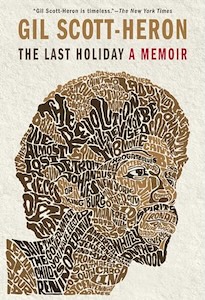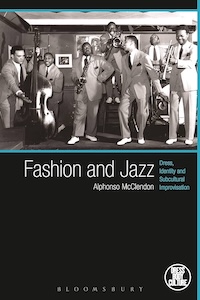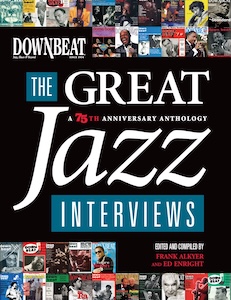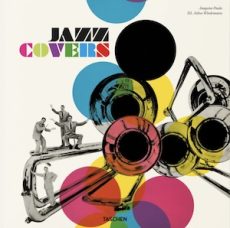
On The Bookshelf…
THE LAST HOLIDAY: A MEMOIR | GIL SCOTT-HERON
From a humble childhood divided between his grandmother in Jackson, Tennessee and his mother in New York City, Gil Scott Heron became one of the most uncompromising and fearless truthtellers of his generation.
His memoir provides a remarkable glimpse into his life and times, from the young man who gained entry into New York’s prestigious Fieldstone School, finding a path out of poverty even as his mother was being hospitalized in a diabetic coma, to the bill budding activist who led his university in a strike to demand better student healthcare.
As he comes of age as a man and as an artist, he provides keen observations on the civil rights movement and the tumultuous changes of the 1960s.
The Last Holidday, published by Grove Press on Martin Luther King Jr. Day, January 16, 2012 in honor of the historic tour in which he participated in the fall of 1980. It serves as both the climax of the book and the inspiration for the title.
His friend Stevie Wonder decided to use his Hotter Than July tour to raise popular support for a national holiday honoring the great civil rights leader, and he invited Scott-Heron to join him. Thus, the book is not just a tribute to Gil’s activism but also offers highly personal recollections of Wonder, Clive Davis, and other musical peers and acquaintances, as well as insights into the music industry, the Civil Rights movement, modern America, governmental hypocrisy, and our wider place in the world.

On The Bookshelf
Fashion and Jazz: Dress, Identity and Subcultural Improvisation
Born in the late 19th century, jazz gained mainstream popularity during a volatile period of racial segregation and gender inequality. It was in these adverse conditions that jazz performers discovered the power of dress as a visual tool used to defy mainstream societal constructs, shaping a new fashion and style aesthetic. Fashion and Jazz is the first study to identify the behaviours, signs and meanings that defined this newly evolving subculture.
Drawing on fashion studies and cultural theory, the book provides an in-depth analysis of the social and political entanglements of jazz and dress, with individual chapters exploring key themes such as race, class and gender. Including a wide variety of case studies, ranging from Billie Holiday and Ella Fitzgerald to Louis Armstrong and Chet Baker, it presents a critical and cultural analysis of jazz performers as modern icons of fashion and popular style.
Addressing a number of previously underexplored areas of jazz culture, such as modern dandyism and the link between drug use and glamorous dress, Fashion and Jazz, published by Bloomsbury, provides a fascinating history of fashion’s dialogue with African-American art and style. It is essential reading for students of fashion, cultural studies, African-American studies and history.

On The Bookshelf
Downbeat: The Great Jazz Interiews: 2009 | Frank Alkyer & Ed Enright
In honor of its 75th anniversary, publisher Frank Alkyer, with the assistance of the magazine’s editors past and present, has combed through the vast DownBeat archives and assembled a compendium of the magazine’s most celebrated, historical, and groundbreaking features, in-depth interviews, insights, classic photographs and magazine covers from the illustrious history of the world’s top jazz magazine, DownBeat.
This anthology includes the greatest of DownBeat‘s Jazz Hall of Famers: from early legends like Jelly Roll Morton, Louis Armstrong, Count Basie, Duke Ellington, and Benny Goodman; to bebop heroes like Charlie Parker, Dizzy Gillespie, John Coltrane, Sonny Rollins, and Miles Davis; to truly unique voices like Ornette Coleman, Cecil Taylor, Thelonious Monk, and Rahsaan Roland Kirk; to the pioneers of the electric scene like Chick Corea, Herbie Hancock, Pat Metheny, and Joe Zawinul.
The Great Jazz Interviews delivers the legends of jazz, talking about America’s music and America itself, in their own words. At times this collection reads less like a book and more like a conversation about jazz among the artists themselves.

Requisites
One of the best things I love about jazz is the discovery of old and new songs, classic and new artists, and bands with which I am not familiar. On one occasion, I visited Evolution Home Theater in Buckhead for the Atlanta Audio Club meeting and had the pleasure to meet and hear jazz vocalist Lyn Stanley. She treated the members to selections from her sixth LP, London Calling: A Toast To Julie London (A.T. Music, LLC – ATM 3107), and discussed how the album was recorded. This 2019 two-record release pays homage to the talented actress, jazz, and pop vocalist with other surprises. My copy used in this report is the limited edition, numbered 33 1/3 Stereo audiophile release.
She’s heard here with nine exceptional musicians; Mike Garson (tracks: A1, A2, A4, B1, B4 to C3, D2 to D4), Christian Jacob (tracks: B3, D1) on piano, John Chiodini (tracks: A1, A2, A4, D3) on guitar, Chuck Berghofer (tracks: A3 to B3, C3 to D1, D3), Mike Valerio (tracks: A1, A2, B1, B5 to C4, D2) on double bass, Paul Kreibich (tracks: A1, A2, B1, B4, C1 to C3, D2) on drums, Aaron Serfaty (A1, A2, A4, B1, B3 to D2) on drums, percussion, Luis Conte (track: C1), Brad Dutz (tracks: A1, A2, B1, B3, B4, C1 to C3, D1, D2) on percussion. What is unique about the album is that each song was recorded only once without any formal arrangements whatsoever, only chord charts with the musical roadmap created by Lyn and the band during the working demo sessions.
Ms. Stanley opens the album with an upbeat rendition of the 1936 song, Goody Goody by Matty Malneck and Johnny Mercer. The lyrics depict a woman getting her revenge on the man who hurt and left her and has now had the tables turned on him. It first appeared on Julie Is Her Name, Volume 2 (1958). Lyn beautifully expresses the song’s lyrics with a lively rendition of the opening and closing melody. Chiodini, Garson, and Valerio also add three spirited concise comments that swing freely. Call Me Irresponsible by Jimmy Van Heusen and Sammy Cahn is from Julie’s LP, The End of The World (1963). This tune shows Lyn is an inspired stylist as she cruises smoothly through the melody with artful simplicity. Chiodini and percussionist Brad Dutz appear at the introduction and finale with Garson, Valerio, and Serfaty providing a solid foundation throughout her presentation.
Bye Bye Blackbird was composed in 1926 by Ray Henderson and Mort Dixon. This song appeared on Julie (1958) and is a slow-tempo duet by Lyn and Chuck. Both vocalist and bassist complement each other in one of the most beautiful renditions I have ever heard. Lyn’s voice is soft and sweet matching Chuck’s bass walking tenderly on a short statement with his sensitive support to her vocals into a tranquil finale. I Heard It Through The Grapevine by Barrett Strong and Norman Whitfield is a Soul classic. It was a hit for Gladys Knight & The Pips on Everybody Needs Love (1967), Smokey Robinson & The Miracles on Special Occasion, and Marvin Gaye on In The Groove (1968). Lyn’s sultry interpretation about hearing a lover’s plan to leave their significant other from someone else is an excellent illustration of how she transforms this straightforward melody into a chillingly unique performance. Chiodini, Garson, Berghofer, and Serfaty provide the slowly rocking beat for her to tell the story.
Side Two starts with a 1928 song from the pen of Irving Berlin, How About Me? Ms. London introduced it on Around Midnight (1960) and the lyrics describe a display of regret and sadness for the loss of someone loved. The tempo moves to a medium beat for Lyn who kicks off the solo sequence with flawless enunciation, followed by Garson and Chiodini who split a perfectly constructed chorus. Cry Me A River by Arthur Hamilton was Julie’s first and biggest hit, making its debut on Julie Is Her Name (1955). It remained her signature song throughout her singing career. Like Ms. London’s version, a trio release featuring Barney Kessel on guitar and Ray Leatherwood on bass, Lyn is accompanied by John and Chuck who are the lush foundation behind her deeply affecting vocals. Chiodini also gives a passionately poignant reading before the trio’s tender climax.
As Time Goes By is songwriter Herman Hupfield’s most well-known composition. It premiered in the Broadway musical, Everybody’s Welcome (1931), but is best known as the song featured in the romantic drama, Casablanca (1942). Julie’s rendition first appeared on Our Fair Lady (1965). The ensemble’s version possesses a Bossa Nova flavor by the musicians and Lyn infuses the lyrics with a cheerfully happy tone, resulting in a delightful vocal interpretation. Christian and John match Ms. Stanley with two mellow statements that move along sprightly off the easy-going drive of Chuck’s bass, Aaron’s drums, and Brad’s percussion.
The first of two vocals of the timeless classic Summertime (1934) by George and Ira Gershwin and DuBose Heyward concludes both records. The song first appeared in the opera, Porgy & Bess (1935). Heyward wrote the lyrics based on his 1925 novel Porgy and it is sung as a mother’s lullaby to her baby. To date, the standard has over twenty-five thousand recordings. It is beloved by jazz musicians and vocalists worldwide and considered one of the greatest songs ever written. Julie sang it on Feelin’ Good (1965). Lyn and the quintet preserve the spirit of the song as a seductive slow tempo southern styled blues and her delivery of the lyrics are alluringly tender and expressive. John and Chuck take the spotlight, leading the quintet through one enchanting chorus preceding the bewitchingly beautiful ending.
Side Three starts with the Latin pop song It’s Impossible by Mexican songwriter Armando Manzanero who recorded it under the original title Somos Novios for his album, Somos Novios…Siempre Novios (1968). It was composed as an instrumental ballad. American composer and songwriter Sid Wayne added English lyrics two years later and it became a huge hit for Perry Como as the title tune of his album (1970). Lyn presents the lyrics with tender beauty and warmth while serenaded by Chiodini who plays a Spanish guitar and has a gentle solo as well. Berghofer and percussionists Conte and Serfaty provide the lush background behind Ms. Stanley’s delicate delivery.
Richard Rodgers and Lorenz Hart’s popular song Blue Moon (1934) was composed as The Bad In Every Man for the crime film, Manhattan Melodrama with different lyrics. After the film’s premiere, Hart eventually wrote more romantic lyrics for the song, and it has been a successful standard since two 1949 hit records by Billy Eckstine and Mel Tormé. Blue Moon opens Julie’s album, Julie Is Her Name, Volume 2 and in the version presented here, Lyn sings the lyrics sensuously at a slower tempo than Ms. London, blending superbly with John who provides a marvelous interpretation enhancing one of the prettiest tunes on the album.
George and Ira Gershwin contribute another jazz classic with Lyn’s version of I’ve Got A Crush On You. This song appeared in two different Broadway musicals, Treasure Girl (1928) and Strike Up The Band (1930). The vocal became a standard after renditions by Ella Fitzgerald, Frank Sinatra, and Sarah Vaughan. Ms. London featured it on Nice Girls Don’t Stay For Breakfast (1967). Lyn captures the melody perfectly with a warm, sincere interpretation and the song is perfect for couples to slow dance to. Chiodini answers her vocals with an impressive chorus backed by Garson, Berghofer, Kreitbich, and Serfaty preceding an intimately romantic conclusion.
Light My Fire was the first huge hit for the American Rock band, The Doors, first appearing on their debut release (1967). The song was a collaborative effort by Jim Morrison, Ray Manzarek, Robby Kreiger, and John Densmore. It appeared on Julie’s final studio album of Pop and Rock songs, Yummy, Yummy, Yummy (1969)! Lyn’s sultry voice caresses each word of the lyric with sensuous pleasure to John’s Flamenco flavored guitar playing, Aaron’s incredibly perfect percussion work, and Mike’s passionately powerful piano cascades that speak voluptuously.
Sway by Norman Gimbel and Pablo Beltran Ruiz appeared on Julie London Sings Latin In a Satin Mood (1963). The rhythm section’s gentle beat serves as a backdrop through the seductively, poignant introduction. Lyn’s tender, expressive opening, and closing vocals are immensely touching as Chiodini’s thoughtfully constructed reading of velvety-soft phrases. Lyn treats us to two beautiful melodies next; Go Slow by Debbie Kronck and Russell Garcia which appeared on Julie’s album, Make Love To Me (1957) and Nice Girls Don’t Stay For Breakfast by Bobby Troup and Jerome Leshay!
On the first tune, her bewitchingly lusty lyrics are the spark for a romantic evening ahead with the assistance of Chiodini, Serfaty, and Dutz who provide the gentle rhythm as she sings. Mike Valerio’s bass sets the mood perfectly for Lyn’s swinging interpretation of the second song’s lyrics illustrating her skillful phrasing into a subtle climax. You, The Night and The Music by Arthur Schwartz and Howard Dietz, premiered in the Broadway musical comedy, Revenge With Music (1934). Julie sang this timeless standard on her album, Around Midnight (1960). Lyn paints a compelling portrait of the lyrics as a Tango, making it her own with a unique delivery to a superbly done danceable beat. Garson matches the vocalist with an exquisite contribution sustained by the rhythm section’s rich accompaniment.
Ev’ry Time We Say Goodbye (1944) is one of Cole Porter’s most beautiful compositions from The Great American Songbook. It first appeared in Billy Rose’s musical revue Seven Lively Acts. This is a trio number with Lyn opening with an enchantingly vocal presentation possessing a deep romantic affection for the lyrics. Her bandmates Chiodini has a voluptuously gorgeous guitar solo and Berghofer matches the delicate softness of her tone with a tender bass beat, resulting in a stunningly perfect rendition. The finale is the second version of Summertime, this time a duet with Lyn and Mike. This tune opens with the pianist’s very pretty introduction capturing the beauty and sensitivity of the song into Lyn’s vocals which weaves a spell of love and intimacy in a style distinctively her own, completing the stories she and her colleagues tell so convincingly.
Lyn and John Chiodini produced the album and the men responsible for the excellent engineering on all the songs except It’s Impossible are Rouble Kapoor and Steve Genewick. Spencer Garcia was the engineer on It’s Impossible. The mastering is by Bernie Grundman of Bernie Grundman Mastering. Allen Sides of Ocean Way Recording is the mixing engineer, and the record was pressed at RTI (Record Technology Incorporated). The sound quality is stunning with a very realistic soundstage of Lyn’s vocals and the musicians’ instruments. If you have a mid-fi or high-end audio system, the music emerges from your speakers vibrantly transporting you into the studio alongside Lyn and the musicians.
Now that I have had the pleasure of hearing Lyn Stanley, I look forward to picking up the other albums in her discography. London Calling: A Toast To Julie London is a record that has it all, superb vocals, engaging compositions, excellent musicians, and a great sound that should be heard in its entirety to be fully appreciated. For those in search of fine jazz singing, I offer for your consideration London Calling: A Toast To Julie London by Lyn Stanley. A great collection of standards and abundant music for the money that once heard should earn her lots of new fans!
~ Around Midnight (Liberty LRP 3164/LST-7164), Everybody Needs Love (Tamla SM-706/SS-706), Feelin’ Good (Liberty LRP-3416/LST-7416), In The Groove (Tamla T-285/TS-285), Julie (Liberty LRP 3096/LST 7004), Julie Is Her Name (Liberty LRP 3066/LST 7027), Julie Is Her Name, Volume 2 (Liberty LRP 3100/LST 7100), Julie London Sings Latin In a Satin Mood (Liberty LRP-3278/LST-7278), Make Love To Me (Liberty LRP 3060/LST-7060), Nice Girls Don’t Stay For Breakfast (Liberty LRP-3493/LST-7493), Our Fair Lady (Liberty LRP 3392/LST-7392), Special Occasion (Tamla S-290/TS-290), Somos Novios…Siempre Novios (RCA Victor MKL-1785/MKS-1785), The Doors (Elektra EKL-4007/EKS-74007), The End of The World (Liberty LRP-3100/LST-7300), Yummy, Yummy, Yummy (Liberty LST-7609) – Source: Discogs.com
~ As Time Goes By, Blue Moon, Bye Bye Blackbird, Ev’ry Time We Say Goodbye, Summertime, You, The Night and The Music – Source: JazzStandards.com ~ Call Me Irresponsible, Cry Me a River, Goody Goody, How About Me, I Heard It Through The Grapevine, It’s Impossible, I’ve Got a Crush on You, Light My Fire, Sway – Source: Wikipedia.org © 2021 by Edward Thomas Carter
More Posts: choice,classic,collectible,collector,history,instrumental,jazz,music

On The Bookshelf
JAZZ COVERS | JOAQUIN PAULO
This striking collection of jazz record covers shows the designs that defined a sound. Containing covers from the 1940s to the early 1990s, each reproduction is accompanied with essential background information. Spanning photographic and illustrative works, these album artworks match music and design in a remarkable history of jazz.
Part design history, part trip down musical memory lane, this anthology of jazz album artwork is above all a treasure trove of creative and cultural inspiration. Spanning half a century, it assembles the most daring and dynamic jazz cover designs that helped make and shape not only a musical genre but also a particular way of experiencing life.
From the 1940s through to the decline of LP production in the early 1990s, each chosen cover design is distinct in the way it complements the energy of the album’s music with its own visual rhythms of frame, line, text, and form. To satisfy even the most demanding of music geeks, each record cover is accompanied by a fact sheet listing performer and album name, art director, photographer, illustrator, year, label, and more.
The AuthorJoaquim Paulo is a consultant for major labels and directs a number of radio stations in Portugal. He started collecting vinyl at the age of 15, and flew to London, Paris, New York, and São Paulo to enrich his collection of over 25,000 LPs. He lives and works in Lisbon and dedicates his free time to recovering old and rare recordings.
The Editor
Julius Wiedemann studied graphic design and marketing and was an art editor for newspapers and design magazines in Tokyo before joining TASCHEN in 2001. His titles include the Illustration Now! and Record Covers series, as well as the infographics collection and books about advertising and visual culture.
Jazz Covers
Taschen: Hardcover, 11.5 x 11.5 in., 9.21 lb, 552 pages
ISBN 978-3-8365-8525-5
Edition: Multilingual (English, French, German)



